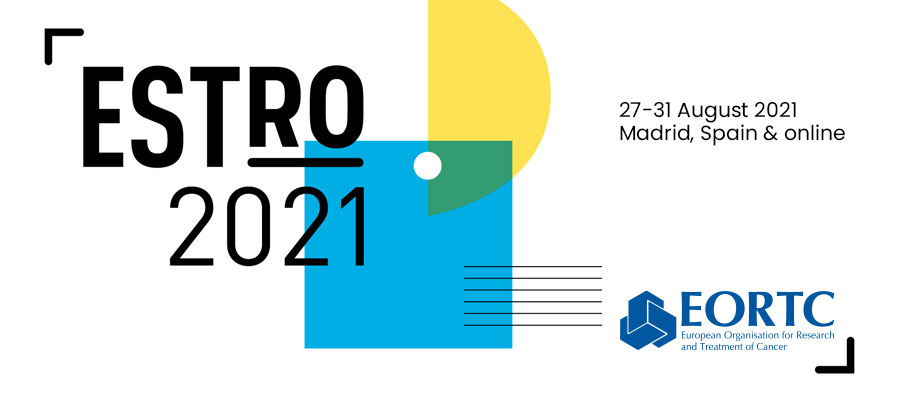News from the ESTRO 2021 congress: Denis Lacombe, awarded honorary membership of ESTRO, emphasises the importance of radiation oncology in multidisciplinary research
28 Aug 2021
“Radiation oncology is among the main pillars of the EORTC scientific strategy and plays a vital part in its mission to improve clinical research through multidisciplinary partnerships”, said EORTC Chief Executive Officer Dr Denis Lacombe, accepting an honorary membership of ESTRO at its 2021 congress. “However, multidisciplinary clinical research programmes are more challenging than regulatory drug trials, and in addition they are faced with the same regulatory, legal, and operational hurdles in a complex, continually changing environment”, he said. As a result, independent investigators often turn to simpler forms of clinical research, such as prospective cohorts and registries. While such research can bring some benefits, this is accompanied by a greater uncertainty about the robustness of their conclusions.
EORTC therefore sees such research as an intermediate step, which is helpful in identifying the questions to be answered, to understand the field better, and to develop protocols to deliver robust evidence. Bur high quality multidisciplinary clinical research programmes require central expertise as well as numerous resources at participating sites, adding challenges. Specific protocols address non-drug questions, but radiation oncology or surgery still represent a minority of the global research agenda. The reasons are many and varied, including a lesser degree of awareness and training in multidisciplinary methodology, both in the academic sector and in the relevant commercial sector, as well as a lack of public investment.
As an example of the shortcomings of such limited trials, Dr Lacombe cites results from a randomised controlled trial (RCT) for surgery for early-stage cervical cancer. Despite a lack of evidence, minimally invasive surgery (MIS) had become the standard of care for this cancer, but an RCT published in 2018 that compared MIS with open hysterectomy found the latter to be superior. This is the principle of medical reversal, where a newer and methodologically superior trial produces results that contradict the dominance of existing methods and change clinical practice. “When new methodologies as well as new solutions for access to data emerge, medical communities should be alerted in order to decide on new standards based on robust methodologies and clinically relevant endpoints”, says Dr Lacombe.
“EORTC provides a highly effective infrastructure for multidisciplinary trials that can produce definite, robust results. We need to address how we as an oncology community can act proactively and build for the future. For this we need multidisciplinary expertise, and therefore partnership is essential,” Dr Lacombe will say.
“While I am personally grateful to ESTRO for awarding me honorary membership, I am even more grateful for the recognition of the importance of partnerships and joint working that this implies. I firmly believe that such collaborations are the future of cancer clinical research. They are needed because the environment is so complex, because the resources required are outside the capacity of any single organisation, and because independent academic research is under constant threat. Joining forces across disciplines in order to be able to deliver solid evidence will also help our efforts to influence health policy,” he will conclude.
Related News
Meet the new EORTC Board
9 Jul 2024
We are pleased to announce the release of the EORTC 2023 Annual Report
17 Jun 2024
Dr Denis Lacombe, EORTC CEO, appointed stakeholder co-chair of ACT EU advisory group
24 May 2024
Clinical Trials Day 2024: a Q&A on pragmatic clinical trials
20 May 2024
EORTC/EMA workshop suggests an international way forward for treatment optimisation studies
8 May 2024
EORTC’s Participation at the ESTRO Congress 2024
29 Apr 2024
EORTC: Advancing research and treatment for rare cancers
29 Feb 2024
EORTC Fellowship Programme: celebrating more than 20 years of impactful collaboration
22 Feb 2024
Appointment of Malte Peters as EORTC Strategic Alliance Officer
9 Feb 2024
Unique series of workshops in partnership with the European Medicines Agency (EMA)
7 Feb 2024


